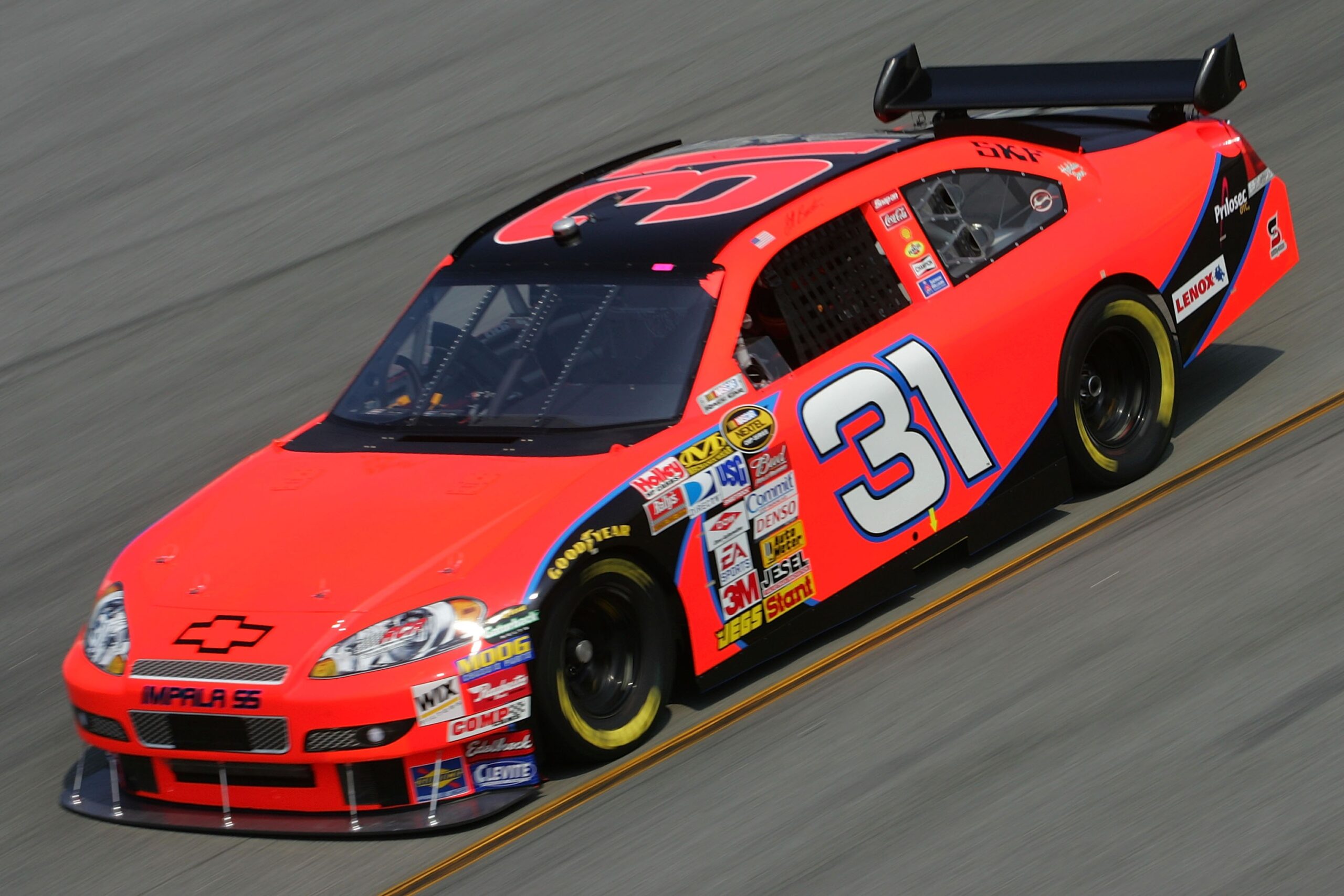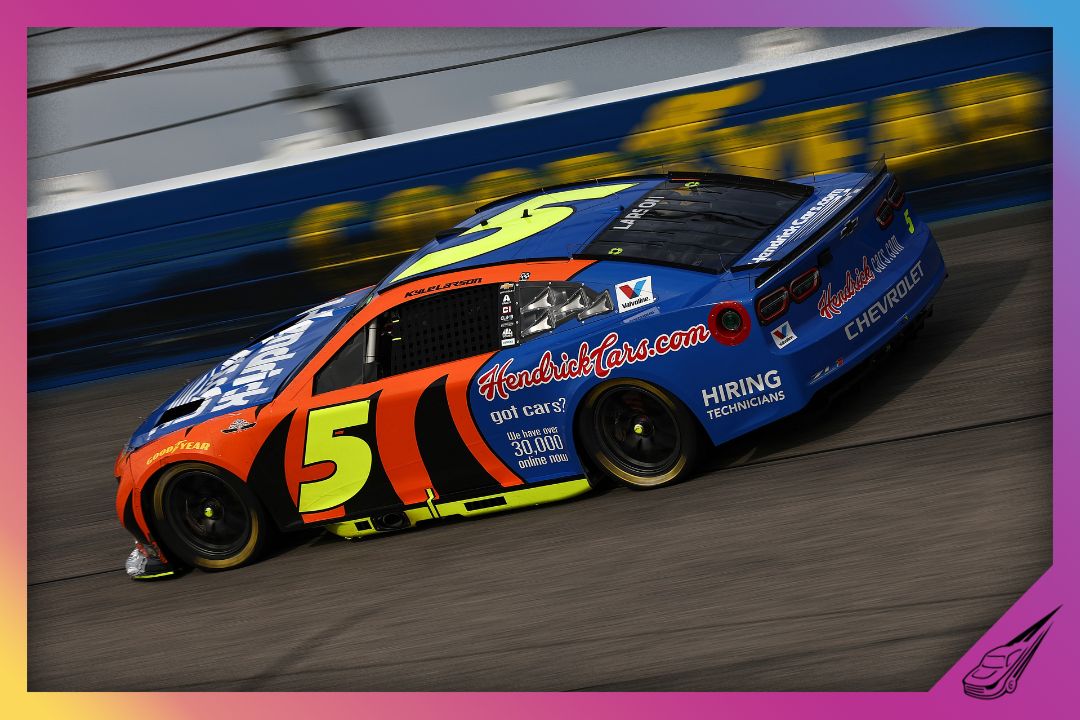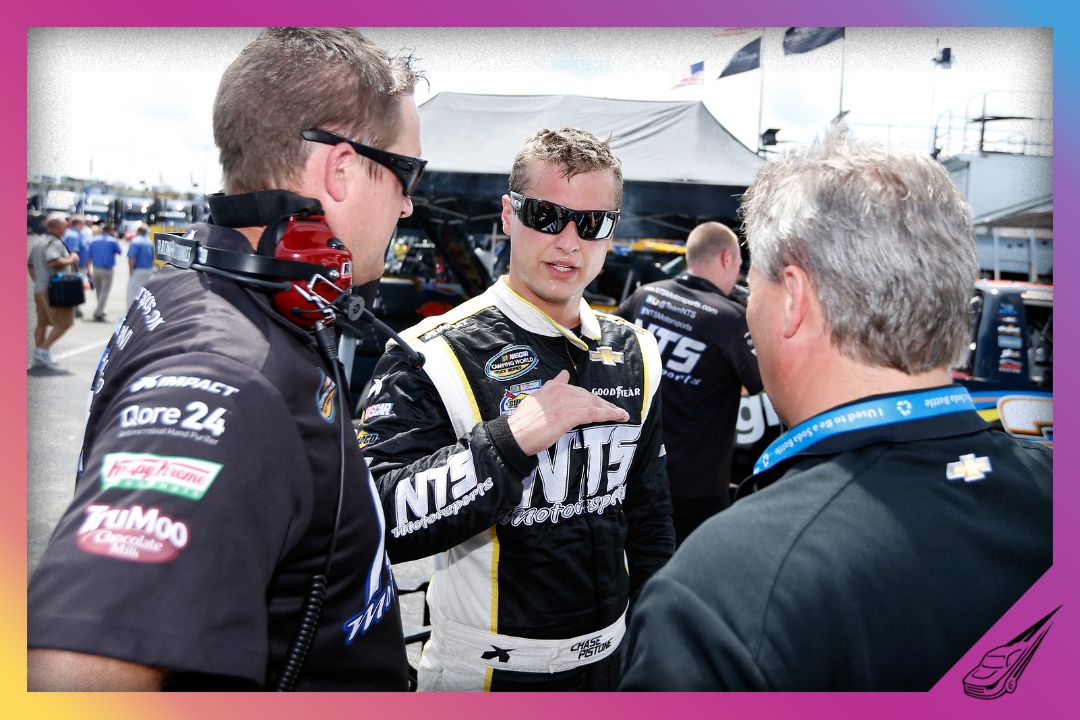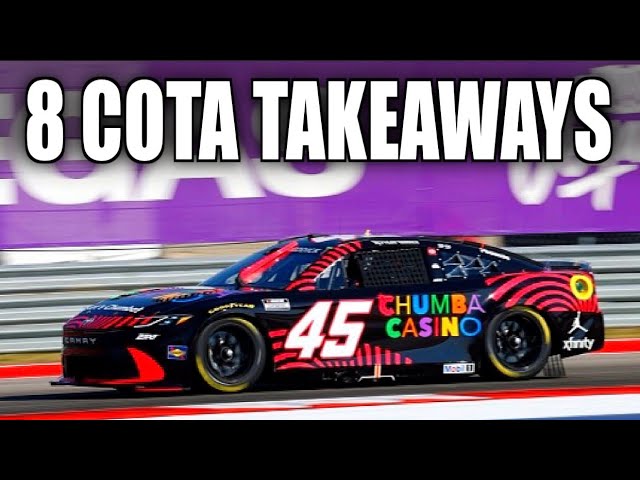
NASCAR and two of its teams, 23XI Racing and Front Row Motorsports, are set to face off in the courtroom soon. While this antitrust case is very noteworthy, it is by far not the first time NASCAR has faced a suit from members of its industry. NASCAR has faced many lawsuits, including injured fans and outsiders upset with the sport. However, we will narrow our focus to some of the industry players who have sued NASCAR.
In this case, Robert Crouch, a veteran of the NASCAR North Series, then known as the Coors Tour, sued NASCAR for their reversal of a scoring decision in an Aug. 11, 1985 race at Catamount Stadium. According to the lawsuit, in this race, Randy Lajoie found himself caught up in an early incident and, after pitting, incorrectly scored one lap down. Following this incident, on a later lap 68 caution, Lajoie passed several cars that he believed he should have been in front of.
A track official is then black-flagged Lajoie, which Lajoie allegedly ignored. One NASCAR official told another to stop scoring Lajoie. Still, that official did not, and Lajoie, seemingly unaware of the black flag, ran home to the win with Robert Crouch second. Following a review of NASCAR as to whether or not Lajoie won the race, NASCAR ruled in favor of Lajoie.
Crouch felt that NASCAR had usurped its ruling, so it sued NASCAR. Crouch initially won in court, arguing that Lajoie was disqualified and was not eligible for the win. However, upon appeal, NASCAR was awarded the victory, with the superior court ruling that NASCAR had acted within its own rules.
The Ferko lawsuit is a very important turning point in NASCAR history. Francis Ferko was a NASCAR fan but also a shareholder in Speedway Motorsports, owners of tracks like Charlotte and Texas. Ferko sued NASCAR and its sister company, track owner International Speedway Corporation, on antitrust grounds revolving around NASCAR’s influence over track ownership and a second race date at Texas Motorspeedway.
The settlement from this lawsuit resulted in ISC selling Rockingham Speedway to SMI. In doing so, Rockingham and Darlington lost race dates, which were handed to the late Auto Club Speedway and Texas Motor Speedway.
This suit, for the most part, ended Rockingham’s time as a NASCAR track. It also gave the loathed Texas Motorspeedway two race dates. However, one of those race dates ended up at the beloved Circuit of America in 2021. It is also very notable how similar this is to the track-related language in the 23XI lawsuit.
This 2007 lawsuit is memorable not for its result but for Jeff Burton’s sponsorless No. 31 racing around the track. The car was noticeably AT&T Orange, as the communications provider was the sponsor of the No. 31.
The reason why AT&T was not on the car was because the company had sought out RCR’s former sponsor, Cingular. When Nextel bought the naming rights to NASCAR’s premier series prior to 2004, the contract grandfathered in rival companies like Cingular.
However, upon AT&T’s purchase of Cingular, Nextel claimed that they couldn’t sponsor Burton’s car. After an injunction allowing AT&T to be in the car, NASCAR countersued AT&T. The two parties settled out of court. The settlement permitted AT&T to remain on the car until RCR could find a suitable replacement following the 2008 season.
In another antitrust case, Kentucky Speedway sued NASCAR once again, this time over its lack of a NASCAR Cup Series race.
This lack of a Cup race had long been a battle for the speedway in its early days before Speedway Motorsports purchased the facility. Once again, the suit approached NASCAR’s sister company, ISC, which is majority-owned by the French family.
The suit claimed that despite being a top-notch facility, Kentucky Speedway was not allowed to race due to NASCAR and ISC’s relationship. This is the key to the suit, not that there aren’t other aspects involved. However, the courts claimed that Kentucky had failed to make a substantial case against NASCAR.
Kentucky did, in fact, get a race date following SMI’s purchase of the track. However, the track lost this date following the 2020 season.
The Jeremy Mayfield vs. NASCAR battle has long been a topic of conversation amongst fans and outsiders. To put it simply, Jeremy Mayfield allegedly failed a drug test and sued NASCAR and other parties for many reasons, including breach of contract and defamation.
However, a district court ruled that Mayfield had waived his right to do so when he signed the NASCAR Driver/Owner Agreement. Furthermore, an appellate court in 2012 agreed with the lower court’s ruling.
This saga accounted for a large portion of NASCAR news in the late 2000s and early 2010s. It still garners attention with fans through today’s media outlets, with Mayfield and Brian France speaking on the matter on the Dale Jr. Download.
As NASCAR fans and industry members enter a new era with this new lawsuit, it is important to remember that in these examples, no one truly “defeated” NASCAR. However, NASCAR has settled in court. If it came to that, perhaps 23XI and FRM could walk away happy. But, for now, it seems they are set on winning, and if that is the case, it looks like a long road is ahead for all involved.
What do you think about this? Let us know your opinions on Discord or X, and don’t forget that you can also follow us on Instagram, Facebook, and YouTube.

by Kauy Ostlien
Lionel Racing finally confirmed the first wave of 2026 NASCAR Authentics 1:64 scale diecast for Monday morning, with the line of retail-exclusive diecast featuring a new look for the new year.
Throwback to Throwback Weekend 🏁 We're hype to finally get these into stores!
— Lionel Racing (@Lionel_Racing) March 2, 2026
Got another wave coming at ya end of this week 😎 pic.twitter.com/UIH88Ruta0
What do you think about this? Let us know your opinion on Discord or X. Don’t forget that you can also follow us on Instagram, Facebook, and YouTube.

by Kauy Ostlien
Chase Pistone, a former competitor on the short track racing circuit in addition to NASCAR’s National Series, has passed away. Pistone, now a successful Legends Car owner, was 42.
Sad News: Chase Pistone, a fixture in motorsports and especially Legend Car racing, has passed away, Legends Nation confirmed with his brothers, Nick and Tom. Chase was not only a wheelman in Legends and Late Models, but his Chase Pistone Inc. Legends team was a force to be… pic.twitter.com/inTB91jGLm
— Legends Nation | LegendsNation.com (@legendsnation) March 2, 2026
What do you think about this? Let us know your opinion on Discord or X. Don’t forget that you can also follow us on Instagram, Facebook, and YouTube.

by Bryan Aguiar
Three races in, the 2026 season is finally starting to show its hand. COTA shifted narratives, exposed weaknesses, and raised new questions about contenders, pretenders, and everything in between.
From substitute drivers being forced into action to points gaps growing faster than expected, COTA delivered more than just a road course chess match. There were momentum swings, reputation hits, and at least one young driver stacking up enemies before stacking up results.
Watch Also: